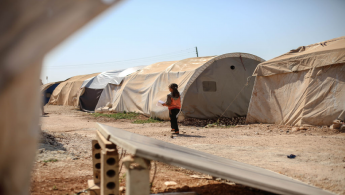Cross-border aid to Syria will end, says Russian ambassador to UN
UN authorisation of cross-border humanitarian aid to Syria without Damascus' agreement will stop, the Russian ambassador to the United Nations said Wednesday, without giving a timeframe.
"It is now a day-to-day operation and eventually it will be closed," Vassily Nebenzia told reporters when asked if a consensus could be found in the Security Council to extend the agreement that expires on July 10.
Asked if Russia deemed it unnecessary to re-authorise the only access, at Bab al-Hawa on the border between Syria and Turkey, he said: "I will not give you any definitive answer at this time. We are continuing consulting."
Nebenzia said aid from Damascus should increase as the crossings were reduced last year from four to one.
He added that a humanitarian convoy bound for the opposition-held Idlib enclave had been authorised in April 2020 by Damascus but never reached its destination due to obstruction by those who control the region.
UN sources confirmed the information to AFP.
The Bab al-Hawa crossing will require a UN vote to stay open, but Russia, which is allied with Syrian President Bashar al-Assad, may use its veto power to block it.
Ireland and Norway, non-permanent members of the Security Council, presented a draft resolution Friday that seeks to keep the crossing open for one year and to reopen a second crossing point, Al-Yarubiyah, which allows supplies to reach Syria's northeast from Iraq.
Humanitarian organisations have been pleading for months for an extension of the UN authorisation.
"In such a politicised environment, as currently experienced in Syria, the humanitarian community should be given the space, the necessary access and the means to build sustainable and continuous supply chains," Laetitia Courtois, of the International Committee of the Red Cross, told AFP.





 Follow the Middle East's top stories in English at The New Arab on Google News
Follow the Middle East's top stories in English at The New Arab on Google News


